Ata-ul-Haye Nasir, Al Hakam
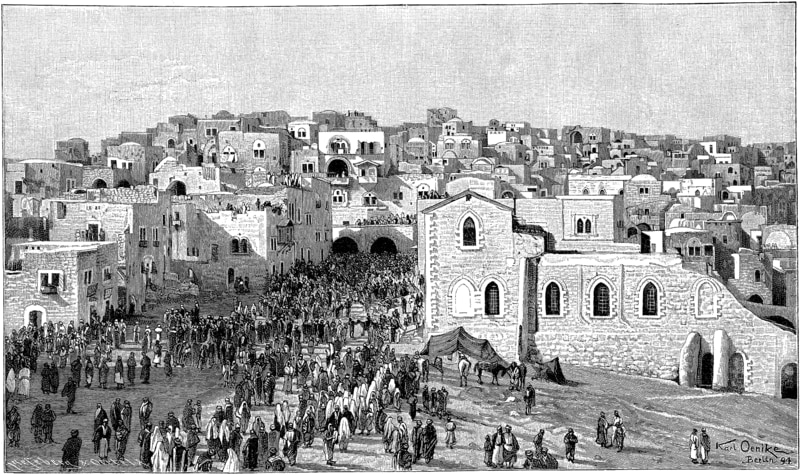
Whether or not 25 December is the actual date of birth of Jesusas is a highly debated issue. Both the Holy Quran and Bible imply that Jesusas was not born in winter and that it was a season in which the dates are ripe.
The New Testament states:
“And she brought forth her firstborn son, and wrapped him in swaddling clothes, and laid him in a manger; because there was no room for them in the inn. And there were in the same country shepherds abiding in the field, keeping watch over their flock by night.” (Luke, 2:7-8)
Mentioning the birth of Jesusas, the Holy Quran says that the angel asked Maryas:
وَهُزِّيۡۤ اِلَيۡكِ بِجِذۡعِ النَّخۡلَةِ تُسٰقِطۡ عَلَيۡكِ رُطَبًا جَنِيًّا
“And shake towards thyself the trunk of the palm-tree; it will cause fresh ripe dates to fall upon thee.” (Surah Maryam, Ch.19: V. 26)
Commenting on this verse, Hazrat Musleh-e-Maud, Mirza Bashiruddin Mahmud Ahmadra said:
“Christian history implies that the Messiahas [of Nazareth] was born on 25 December. Luke states that Caesar Augustus had commanded to hold a census at the time, for which Joseph and Maryas travelled from Nazareth to Bethlehem, and this is where Jesusas was born, meaning that Jesusas was born on 25 December in Bethlehem at the time when the first Jewish census was conducted under the command of Caesar Augustus [according to Luke, 2:1-6].
“However, the Holy Quran states that Jesusas was born in the season of the ripening of dates. December is not a time for the ripening of dates; rather, it is July and August. Moreover, we find that God Almighty told her [Maryas] about a stream of water as well, where she could give a bath to the [newly born] child and cleanse herself as well.
“From this, we come to know that it was the month of July or August, otherwise, it would have been unwise to take a bath herself and to give a bath to the child at the stream in such cold weather [of December], especially on a mountainous place in the North of Arabia.
“Nonetheless, Christian history asserts Jesusas was born in December, and even if we concurred with this for the sake of argument, then the issue would arise that the Holy Quran states [that the angel asked] Maryas:
وَهُزِّيۡۤ اِلَيۡكِ بِجِذۡعِ النَّخۡلَةِ تُسٰقِطۡ عَلَيۡكِ رُطَبًا جَنِيًّا
“‘And shake towards thyself the trunk of the palm-tree; it will cause fresh ripe dates to fall upon thee.’ [Surah Maryam, Ch.19: V. 26]
“Thus, if it is true that Jesusas was born in December, then the question arises as to why the Quran mentioned dates, whereas dates do not mature in that season.
“In order to avoid this question, the commentators [of the Holy Quran] have written that Maryas went near the date palm in order to get support in her painful condition. The commentators wondered, ‘If the Christians assert that Jesusas was born in December, then why did Maryas go near the fruitless date palm, since it is very unlikely for dates to ripen in December?’ In response, they assumed she approached the date palm for support due to her painful condition.
“However, they did not contemplate that along with the words ‘And shake towards thyself the trunk of the palm-tree; it will cause fresh ripe dates to fall’ [19:26], the Holy Quran states [in the next verse]:
فَكُلِيۡ
“‘So eat’ [19:27].
“Just because they had in their minds the Christian belief about the birth of Jesusas in December and the fact that date palms do not ripe in that season, they interpreted she went near the fruitless date palm just for getting support in her painful condition. However, some commentators have pondered over the words تُسٰقِطۡ عَلَيۡكِ رُطَبًا جَنِيًّا and فَكُلِيۡ, and wrote that it was a miracle that upon shaking the infertile date palm, fresh dates fell upon her.
“The second point of concern is that this incident took place in Judea. The Holy Quran mentions the dates and Biblical history tells us that olives, almonds, and grapes were found in that area, but it does not mention dates. And strangely, December is not the season of almonds, grapes or olives. […]
“Now, let’s see whether the date palms were found in the areas that are said by the Gospels to be Jesus’ place of birth. When we study the Bible in this regard, we find the Bible itself attests to the presence of date palms in that area. Hence, it states:
“‘The descendants of Moses’ father-in-law, the Kenite, went up from the City of Palms with the people of Judah to live among the inhabitants of the Desert of Judah in the Negev near Arad.’ (Judges, 1:16)
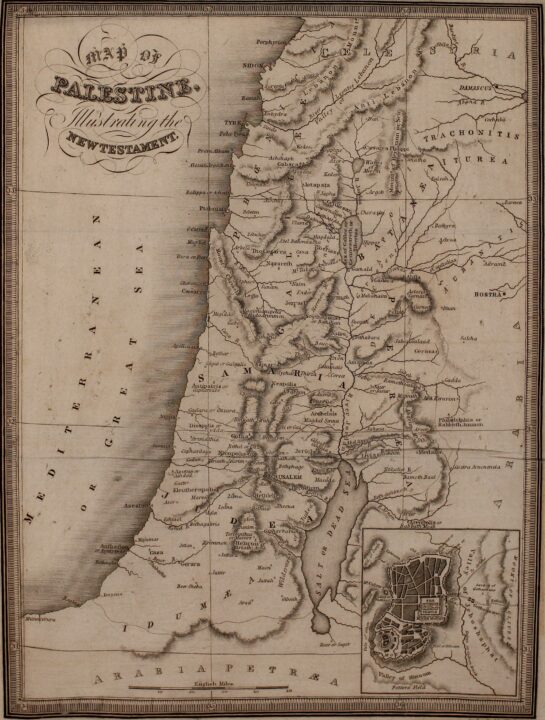
“Arad – mentioned in this reference – is around 100 miles away from Bethlehem, and since the City of Palms was in its North, it suggests that date palms were certainly present around the area of Bethlehem. Moreover, since the area of Judea, in which Bethlehem is located, connects to Arabia, the presence of date palms is very much possible there.
“From this research, the matter of اِلَيۡكِ بِجِذۡعِ النَّخۡلَةِ has been solved that the date palms were found in that area. However, the question that still needs to be resolved is the Holy Quran states that at the time of the birth of Jesusas, it was the season when there were dates attached to the palm tree and were ripened and eatable as well. On the contrary, the Christians say Jesusas was born in December, which is not a season of dates.
“Therefore, it must mean that according to the Holy Quran, Jesusas was born in a season when there are [ripe] dates on palm trees. The Christian histories assert that Jesusas was born on 25 December, and some believe it to be in April, however, December and April both are not the peak seasons of dates. Hence, we require further research on this matter.” (Tafsir-e-Kabir, Vol. 5, pp. 179-180)
Luke’s statement about the Census
While mentioning Luke’s statement about the census held under Caesar Augustus’ command, Hazrat Musleh-e-Maudra said:
“This verse [Ch.19: V.26] of the Holy Quran compels us to ponder and to find out the reason behind the contradiction between these two statements [the Quranic verse and Luke’s statement]. From this perspective, when we look into history, we find that Luke was mistaken about the census. He states that Joseph and Maryas went to Bethlehem from Nazareth for the purpose of the census, however, Roman history suggests there was no census conducted during the year of Jesus’ birth.
“[Titus Flavius] Josephus – the greatest historian during the time of Jesusas – writes that the first ever census was held in 7 AD. […] He further states that it was such a new phenomenon for the Jews that it made them wonder what was the purpose of that census. If the census had already occurred seven years prior, then why would the Jews be amazed this time?
“Moreover, history also suggests that at the time of the death of Herod, Quinctilius Varus was the governor [of the Roman province of Syria], not [Publius Sulpicius] Quirinius, as stated by Luke. In addition, Roman history says that the preceding governors were Sentius Saturninus and Titius – the former held the position from 9 to 6 BC, and the latter is mentioned in the history in 10 BC. (Encyclopaedia Biblica, under the word ‘Chronology’). It means that there was no governor, namely Quirinius, between 10 BC and the death of Herod [in 4 BC]. […]
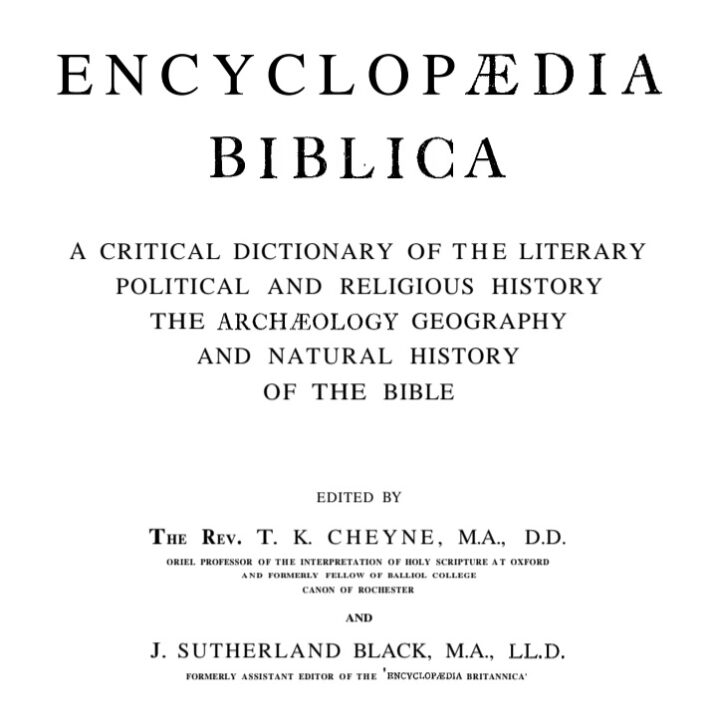
“From this we can understand that Luke’s mind had mixed up the incidents. It is possible that, after hearing about the census, which was held years after [the birth of Jesusas], he misunderstood that it had occurred earlier and Joseph had gone out for that. And then he [Luke] linked the incident of [Jesus’] birth with this. Or he had intentionally distorted the incidents, which is the reality in fact.” (Ibid, pp. 180-181)
The reference from the Encyclopaedia Biblica, which has been quoted by Huzoorra, states:
“Lk. [Luke] says (2:1-5) that Jesus was born at the time when a census, ordered by Augustus for the whole empire, was being taken in Judea and Galilee, and that this was while Cyrenius (undoubtedly Publius Sulpicius Quirinius) was governor in Syria. Such a census, however, was legally impossible in the reign of Herod, and a governorship of Quirinius in Syria before Herod’s death is chronologically impossible, since at the time of Herod’s death (4 B.C.) Quinctilius Varus (who put down the insurrection following that event) was still governor in Syria, whilst his predecessors were Sentius Saturninus (9-6 B.C.) and Titius (attested for 10 B.C.). Josephus, who relates the last years of Herod in much detail, has no knowledge of such a census, but says that the census of 7 A.D. was the first, and something altogether novel for the Jews. […]
“The account in Lk. [Luke] rests, therefore, on a series of mistakes, and the most plausible view is that the evangelist, or the tradition which he followed, for some reason combined the birth of Jesus with the census under Quirinius, and assigned to the latter a wrong date.” (Encyclopaedia Biblica, Vol. 1, under the word ‘Chronology’, London, 1899)
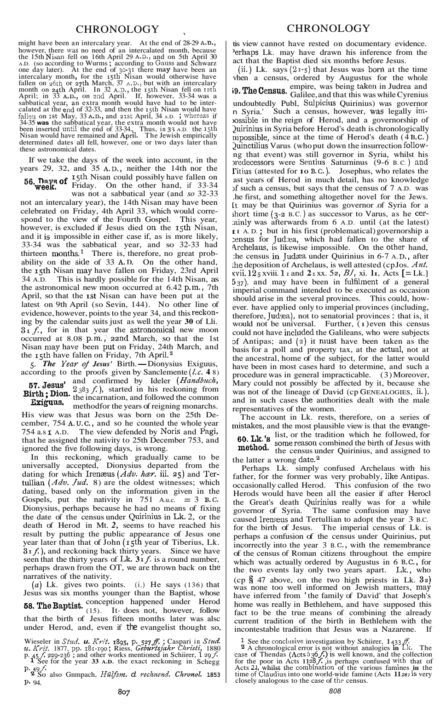
While speaking about the reason which compelled Luke to link the census of 7 AD to the birth of Jesusas, Huzoorra said that he felt a desperate need to present an excuse to explain why Joseph and Maryas undertook such a long journey to Bethlehem.
Huzoorra said that when Maryas became pregnant without a husband, Joseph was told in a dream that he should bring her to his home since she was speaking the truth about her chastity. Though Joseph was convinced, they had a fear that people would not believe this and would malign the pure character of Maryas. For this reason, when the pregnancy became apparent, they decided to move to a distant place and Maryas gave birth to the child.
While shedding light on the difficulty faced by Luke in narrating the above-mentioned occurrences, Huzoorra said that Luke – in addition to stating that the angel told Maryas “you will conceive in your womb and bear a son, and you shall name him Jesus” – also stated that the “miracles” began to manifest from the time of Mary’sas conception:
“During those days, Mary set out and travelled to the hill country in haste to a town in Judah, where she entered the house of Zechariah and greeted Elizabeth. When Elizabeth heard Mary’s greeting, the infant leaped in her womb, and Elizabeth, filled with the holy Spirit, cried out in a loud voice and said, ‘Most blessed are you among women, and blessed is the fruit of your womb. And how does this happen to me, that the mother of my Lord should come to me? For at the moment the sound of your greeting reached my ears, the infant in my womb leaped for joy. Blessed are you who believed that what was spoken to you by the Lord would be fulfilled.’” (Luke, 1:40-45)
Huzoorra elaborated that if the “miracles” had begun at that time, and the “divinity” of the child was so apparent, then there was no need to hide it and move to a distant place:
“Luke had intended to prove the ‘divinity’ of Jesus, and thus, he narrated that ‘miracles’ of Jesus had begun since the time of Mary’s conception. […] Luke thought that if it were proved that Maryas had migrated due to her pregnancy, it would be asserted that despite witnessing such ‘signs’ and ‘miracles’ of Allah the Almighty, Mary and her husband Joseph had feared the people’s objections. On the other hand, Luke could also not deny the fact that Joseph and Maryas had migrated. […]
“In order to avoid this objection, he narrates that the census was held during the year of birth – which was actually conducted in 7 AD – in order to justify the migration of Joseph and Maryas.” (Tafsir-e-Kabir, Vol. 5, p. 182)
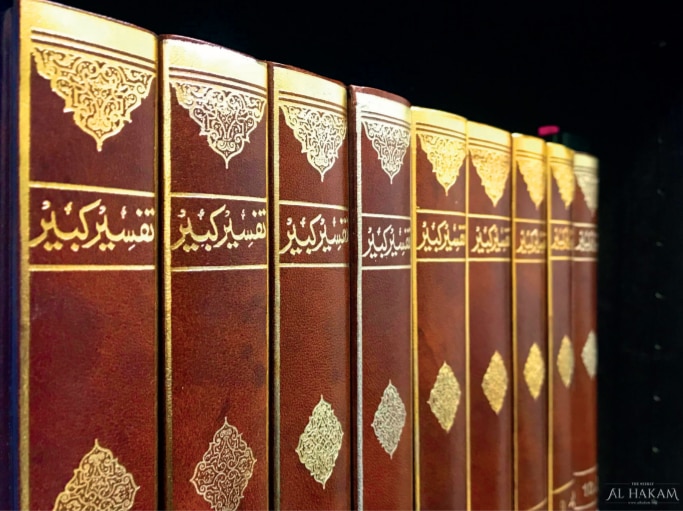
The Luke’s statement about shepherds
Hazrat Musleh-e-Maudra further states:
“While narrating about the birth of Jesusas, it is stated in one of the gospels:
“‘Now there were shepherds in that region, living in the fields and keeping the night watch over their flock.’ (Luke, 2:8)
“Obviously, it was the summer, instead of the extreme winter. The weather in Palestine in December is not only very cold but also extremely rainy and foggy. Who can accept that in such weather the shepherds had come out in the fields along with their flock? It is clear that it was summer.
“Therefore, in the Peake’s Commentary on the Bible, while commenting on Luke’s statement [Luke, 2:8], Principal A J Grieve M.A.D states that it could not be the month of December, and that the tradition of Christmas Day — which was initially found in the West — had begun some time later.
“In his book The Rise of Christianity, Bishop [of Birmingham, Ernest William] Barnes writes:
“‘There is, moreover, no authority for the belief that December 25 was the actual birthday of Jesus. If we can give any credence to the birth-story of Luke, with the shepherds keeping watch by night in the fields near Bethlehem, the birth of Jesus did not take place in winter, when the night temperature is so low in the hill country of Judaea that snow is not uncommon. After much argument, our Christmas Day seems to have been accepted about AD 300.’ (The Rise of Christianity, Great Britain, 1948, p. 79)
“Therefore, in light of these references, it is evident that the birth of Jesusas did not occur in December. […]
“It is possible that the census of 7 AD took place in December, and in an attempt to take advantage of this, Luke linked it to the year of birth. Obviously, Luke had written the book 70-80 years later, thus, who could have remembered as to when exactly the census happened?
“From this commentary […] which is also supported by the incidents from Roman history and the gospel traditions, the reason behind the Holy Quran’s mentioning the incident of ripened dates, becomes very clear.” (Tafsir-e-Kabir, Vol. 5, pp. 184-186)

